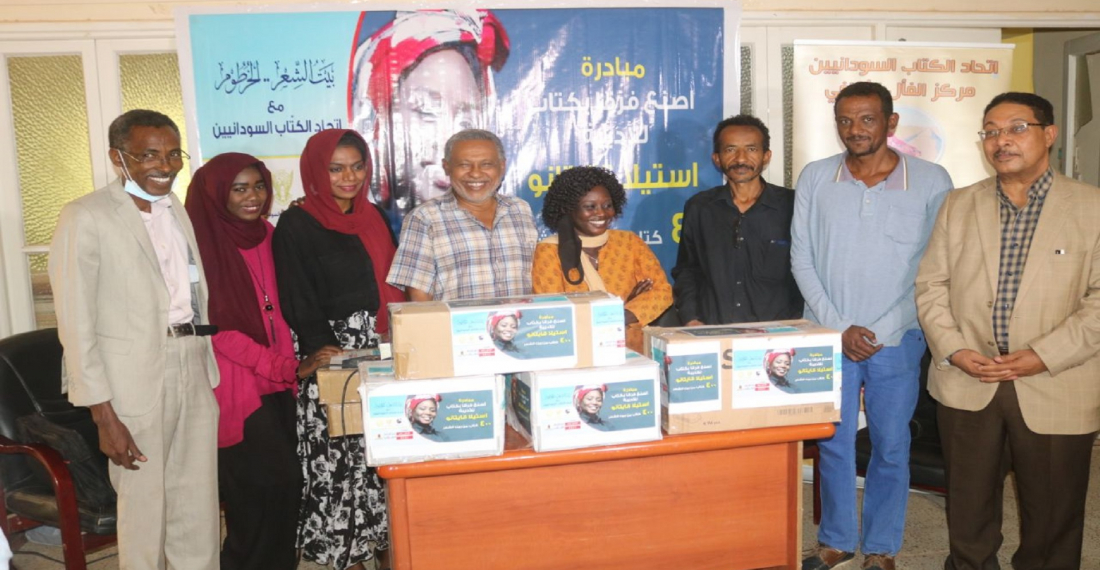A new book donation and distribution scheme in Darfur aims to consolidate peace and contribute to post-conflict recovery in Sudan. Estella Gaetano, novelist and storyteller from South Sudan launched the initiative called "Make a difference with a book."
Gaetano visited Darfur at the end of last year and started promoting her initiative by setting up creative writing workshops, in cooperation with some local cultural institutions. The novelist added that the goal of the initiative is to provide books with all their diverse contents and to establish public libraries in Darfur.
The initiative received support from many sectors and cultural institutions, foremost of which the Sudanese Writers Union, which launched the initiative from its home and became its official partner. It also gained support from the Khartoum House of Poetry and the University of Khartoum printing and publishing house who have contributed many books and volumes to the initiative.
"The initiative is a call for society to make a difference by contributing a book or more, and its approach is based on the interaction between the components of the Sudanese people," said Union Secretary-General Nader Al-Samani.
Currently, the initiative operates in Darfur but is planning to expand to other Sudanese governorates and possibly to South Sudan. The initiative broke the political map and overlooked the new borders between the two countries.
Gaetano's dream is to spread knowledge and help children move from displacement camps to library benches, and for their eyes to turn away from the sight of war and its effects on the pages of books.







